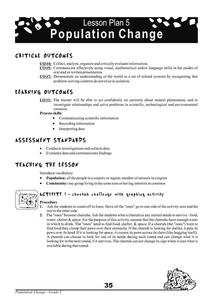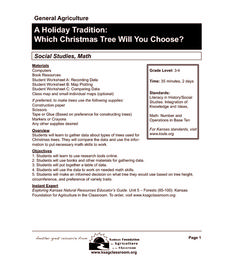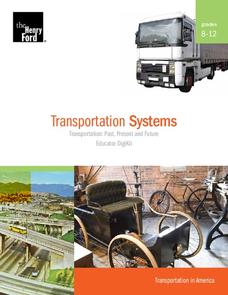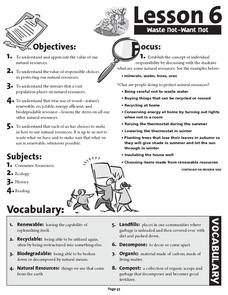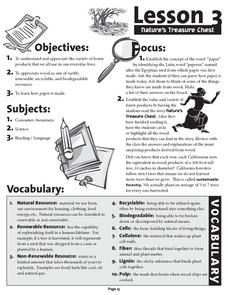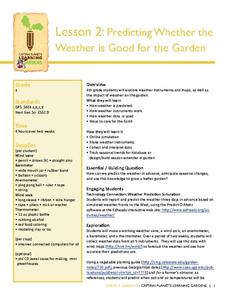Norwich Institute for Language Education
Simple Machines
Planning a unit on simple machines? Save some time and energy with this collection of lessons and activities that explores how these devices are used in the real world to make life a little easier.
CPO Science
Physics Skill and Practice Worksheets
Stop wasting energy searching for physics resources, this comprehensive collection of worksheets has you covered. Starting with introductions to the scientific method, dimensional analysis, and graphing data, these skills practice...
Scholastic
Will He See His Shadow? Groundhog Day Activities
What a fantastic collection of activities for celebrating Groundhog Day! This resource includes a variety of holiday reading selections, groundhog facts, links to printables, story comprehension lessons, and much more!
North Clackamas Schools
Sorting Living and Nonliving Objects
Is a rock living? How about lima beans? You'll find everything you need for an interactive sorting activity exploring living and non-living things.
Cheetah Outreach
Population Change
Your youngsters become cheetahs in search of food, water, shelter, and space in a fun physical game that does a fantastic job of representing fluctuating species population based on resources available over years.
Curated OER
Materials for Teaching Modern Physics
A must-see for any physics teacher! You will find 217 pages of physics activities and worksheets that cover motion, electricity and magnetism, light, modern and quantum physics, and astronomy. Each activity comes with an answer key for...
NNF
Floods Happen
Did you know that flooding is the most common natural disaster in the United States? Prepare your learners with the facts about floods and offer them the proper knowledge and tools for dealing with this type of emergency.
Agriculture in the Classroom
A Holiday Tradition: Which Christmas Tree Will You Choose?
Different varieties of Christmas trees provide an interesting way to combine social studies, science, math, and technology. Class members not only research the history of the Christmas tree holiday tradition, they compare and contrast...
Sea World
Shark!
Is that a shark? Here's a 10-lesson unit that will have learners expanding their definition of what a shark actually is as they examine different features, habitats, and diets. They explore endangered species, using information cards...
Henry Ford Museum
Transportation Systems
Learners analyze the evolution of cultural attitudes through the lens of transportation, examining several artifacts, documents, and photographs. Topics covered include how American attitudes have influenced society's evolution into a...
SeaWorld
How Big is a Blue?
Whales are all big, but some are larger than others! Kids will love sorting the 10 whale species by size at their desk (whale cut-outs provided). Next, use a whale rope to visualize how long each of these whales actually is. A large...
MOST
What Are Cells?
What's in a cell, anyway? Kids read informational text on what makes up both animal and plant cells, including a page of vocabulary terms they will need to be familiar with (cytoplasm, ribosomes, vacuoles, etc.). Full-color images make...
Forest Foundation
Forests, Carbon & Our Climate
To conclude their examination of forest ecosystems, class members consider the role forests play in the carbon cycle and how forests can offset climate change.
Forest Foundation
Forest Families
Class groups play a Forest Families card game to reinforce concepts presented in the first six sessions of a nine-lesson plan study of tress and forest ecosystems.
Forest Foundation
Waste Not - Want Not
Recycling is the focus in the sixth of a nine-lesson series devoted to forest ecosystems. Class members read an article about the responsible use of natural resources and ways to reduce land fill.
Forest Foundation
Forest Health
Young foresters examine the strategies, like prescribed burns and thinning, that are employed to ensure healthy forests.
Forest Foundation
The Sustainable Forest
As part of their examination of forest ecosystems, class members examine how foresters, biologists, botanists, geologists, and hydrologists work to together to develop a management plan for sustainable forests.
Forest Foundation
Nature's Treasure Chest
Renewable, recyclable, and biodegradable. As part of their study of the forest ecosystem, class members read "Nature's Treasure Chest" about the many products made from trees and then craft their own recycled paper.
Forest Foundation
The Nature of Trees
Young botanists examine the different parts of tress and then draw parallels between the functions of these parts and the function of parts of the human body.
Forest Foundation
The Web of Life
Producers, herbivores, carnivores, omnivores, decomposers. To begin a study of the forest ecosystem, learners examine the connections among the members of ecological communities.
ARKive
Biodiversity and Evolution – Darwin’s Finches
Teens experience natural selection firsthand (or first beak) in an activity that has them act as finches foraging for food. Using different household items to act as different beak styles, your little finches will collect as much food...
Captain Planet Foundation
Which Plant Is Which?
Learn about dichotomous keys, plant identification, and how to care for the planet with a lesson plan that includes several hands-on and innovative activities. Kids go on a plant scavenger hunt and classify the plants that they find...
Captain Planet Foundation
Predicting Whether the Weather is Good for the Garden
Can your class predict the weather? Show them how they can come close with a lesson about creating weather instruments, including weather vanes, barometers, wind socks, anemometers, and thermometers. Kids research weather patterns and...
Captain Planet Foundation
Help a Sister Out: Garden Companions
Explore Native American gardening traditions with a lesson on companion planting. Based on the concept that certain crops grow better when planted near other specific crops, kids research the gardening method with background links and by...






